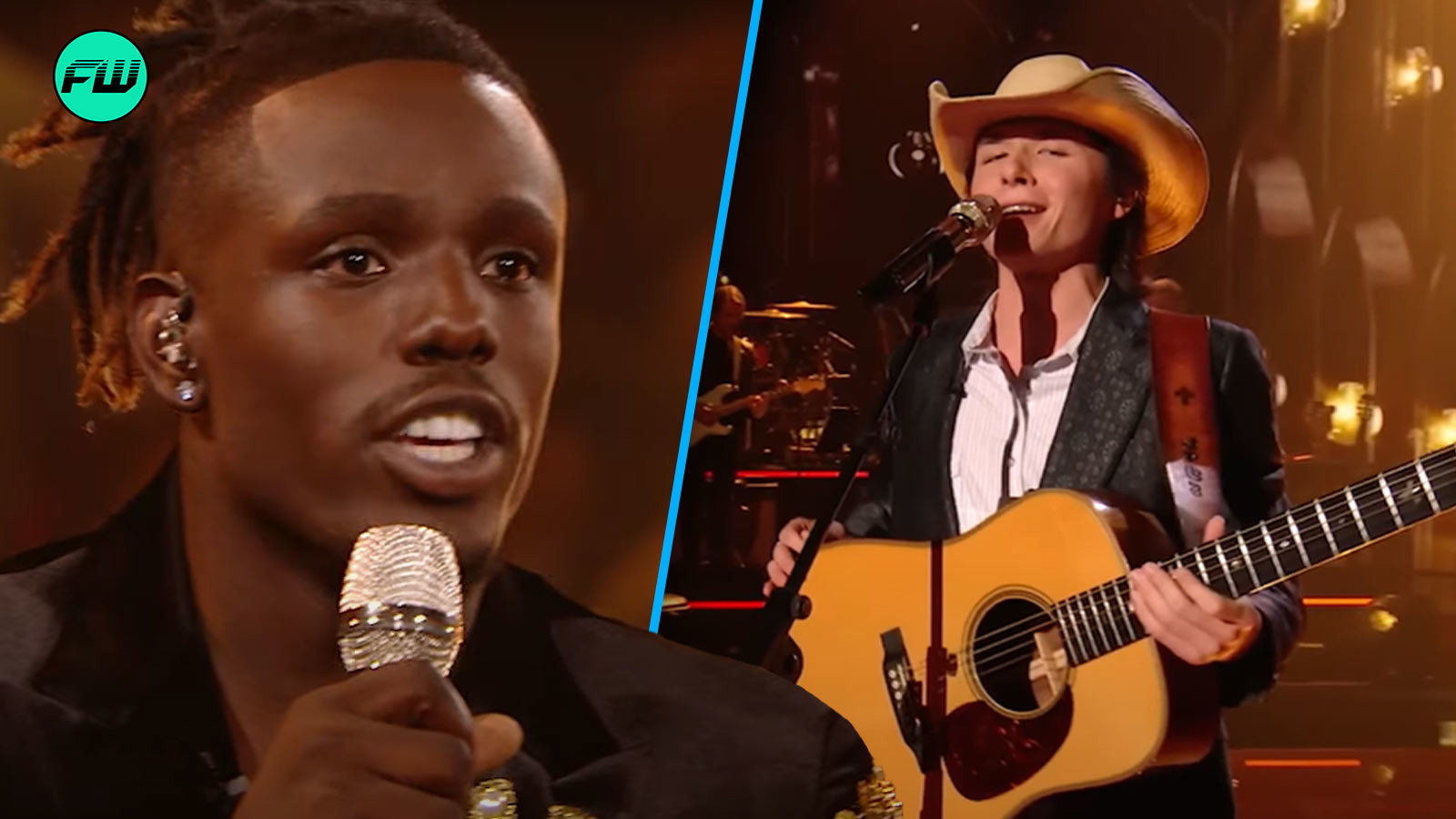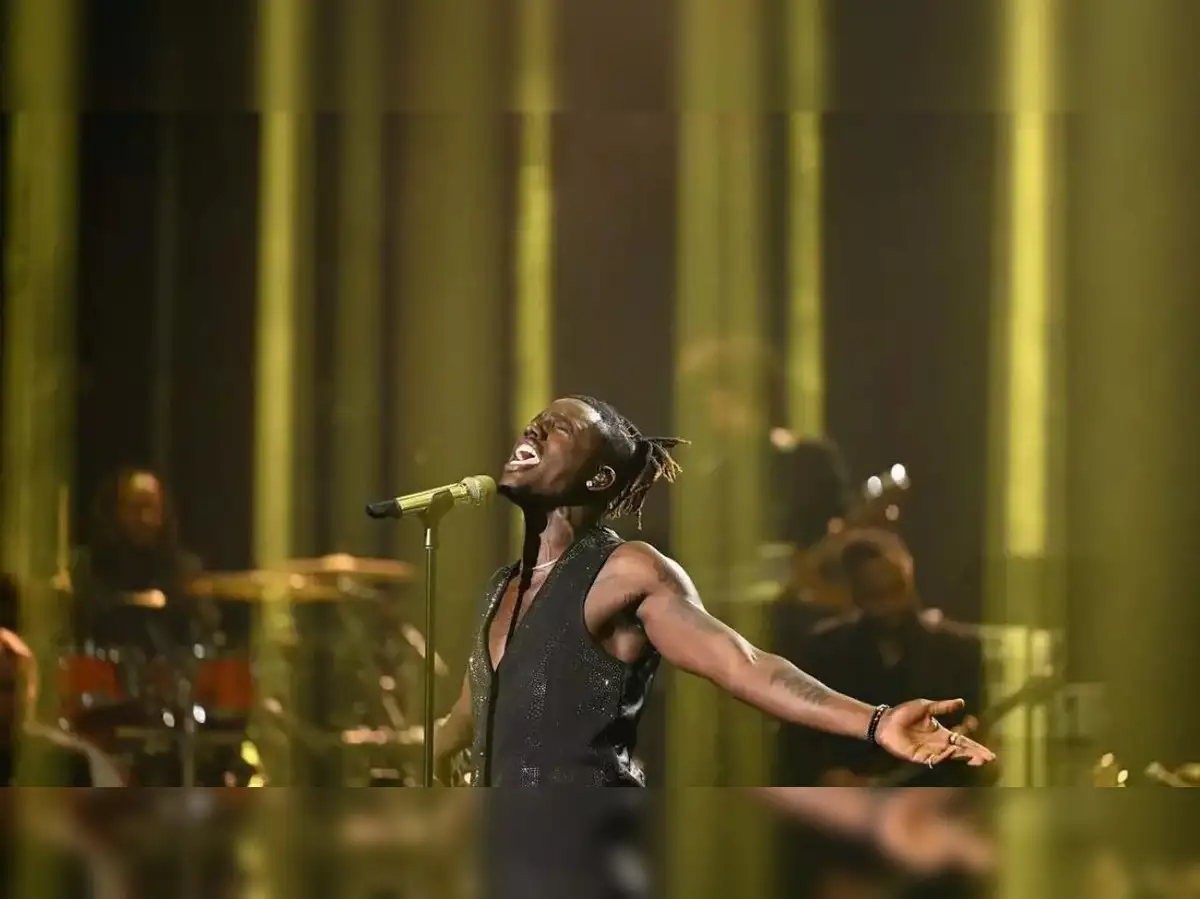After John Foster Called Jamal Roberts a “Trash, F*cking Black Boy,” Country Music Legend Alan Jackson Sent John Foster a Five-Word Warning Message…
In a moment that stunned fans of American Idol and rocked the music industry, country music legend Alan Jackson stepped into an unexpected spotlight—not with a new song, but with a powerful message directed at one of the show’s most controversial contestants.
His five words were loud, clear, and impossible to ignore:
“John Foster, you’re becoming a racist.”
This came after American Idol 2025 runner-up John Foster made a deeply offensive, racially charged comment about the newly crowned winner, Jamal Roberts, just moments after the finale aired.
The Slur That Shook the Nation
Tensions were already running high after a dramatic season finale that saw 27-year-old soul-pop artist Jamal Roberts win American Idol 2025, earning the title with a breathtaking performance that blended gospel, R&B, and modern soul. But the celebration was overshadowed when a backstage video was leaked to social media showing John Foster, the runner-up, lashing out in anger.
In the clip, Foster was heard saying:
“Jamal’s trash. A fcking Black boy. That’s what he is.”*
![]()
The slur—laced with both racial and personal disrespect—spread like wildfire across the internet. Fans, artists, and celebrities alike immediately condemned the comment as hateful, inappropriate, and deeply disappointing.
Alan Jackson Breaks His Silence
Few expected Alan Jackson, a pillar of traditional American country music and a figure known more for his humility than for engaging in public controversies, to weigh in. But when he did, it was with the kind of authority only a legend can bring.
On his verified social media account, Jackson wrote:
“John Foster, you’re becoming a racist.
And American music has no room for racists. That’s why Jamal won. Not you.”
![]()
The post, though short, sent shockwaves across the entertainment world. With over 30 years in the industry and countless awards to his name, Jackson’s words carried enormous weight—and were seen by millions.
Fans responded with overwhelming support. One user commented, “When Alan Jackson speaks, you listen. And this was needed.” Another added, “Alan just spoke for the entire country.”
Jamal Roberts Responds With Grace and Strength
While many expected Jamal Roberts to be furious or confrontational, his response only further proved why he’s an American Idol in every sense of the word.
In a statement posted to his Instagram page alongside a photo of him holding his trophy, Roberts wrote:
“I know who I am. I know what I stand for. I sing with heart, with truth, and with pride. I didn’t win because I’m Black—I won because I earned it.”
![]()
He continued, “Let’s use this moment to do better, to speak better, and to love louder than hate ever could.”
His words struck a chord with fans and celebrities alike. Even former Idol contestants like Kelly Clarkson and Fantasia Barrino shared his post, praising his grace under pressure.
The Backlash Against John Foster
The consequences for Foster have come quickly. Several sponsors have reportedly pulled out of endorsement discussions. Idol producers released a statement condemning his words and promising to uphold the values of “diversity, respect, and inclusion.”
Music critics have pointed out that Foster’s brand of “down-home country” was already struggling to find mass appeal in a genre that’s rapidly diversifying. This controversy may now permanently damage his mainstream future.
“John Foster might’ve thrown away a promising career with a single sentence,” said one industry insider. “In today’s world, there’s no space for that kind of hate.”
![]()
Alan Jackson’s Words Reflect a Bigger Cultural Shift
Alan Jackson’s statement didn’t just defend Jamal Roberts—it called out an ugly truth about racism in the music industry, particularly in country music. The genre, historically dominated by white artists and audiences, has long been criticized for lacking diversity and failing to address racial inequality.
By speaking out, Jackson aligned himself with a growing number of artists—like Darius Rucker, Mickey Guyton, and Kane Brown—who are demanding that country music reflect the real America.
“When a giant like Alan Jackson says it, it’s not just opinion—it’s leadership,” said music journalist Erica Morgan. “He reminded everyone that the soul of country music is rooted in honesty and heart. And there’s nothing honest about racism.”
Will John Foster Apologize?
As of now, Foster has not issued an apology or public response. His social media accounts have gone quiet, and his management team has declined to comment.
Some speculate that a formal statement may be released soon, but for many fans, it may already be too late.
“He said what he truly felt. And now the world saw it,” one user posted. “No apology can erase that.”
The Real Victory: Jamal’s Voice
Despite the controversy, Jamal Roberts’ win still shines as a beacon of talent, resilience, and unity. His journey—from a struggling singer in Atlanta to American Idol champion—has inspired millions.
And in the face of ignorance, he stood tall.
Luke Bryan, one of the show’s judges, summed it up best during the finale:
“Jamal didn’t just win because he can sing. He won because he has a soul you can feel.”
Final Thoughts
Alan Jackson’s five-word warning—“John Foster, you’re becoming a racist”—was more than a rebuke. It was a rallying cry.
A reminder that America’s greatest music has always been born from struggle, from truth, from pain and healing. And in that story, there’s no room for hate.
That’s why Jamal Roberts won. Not John Foster.



